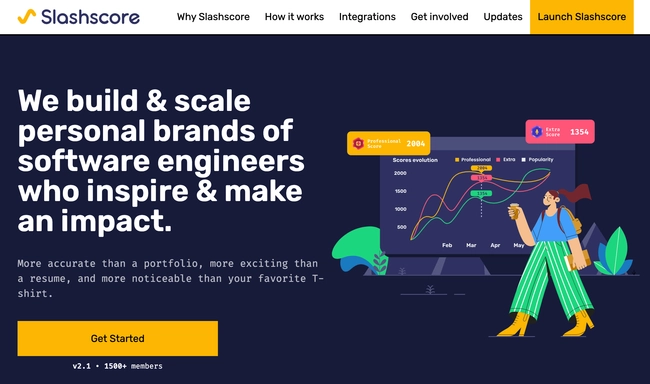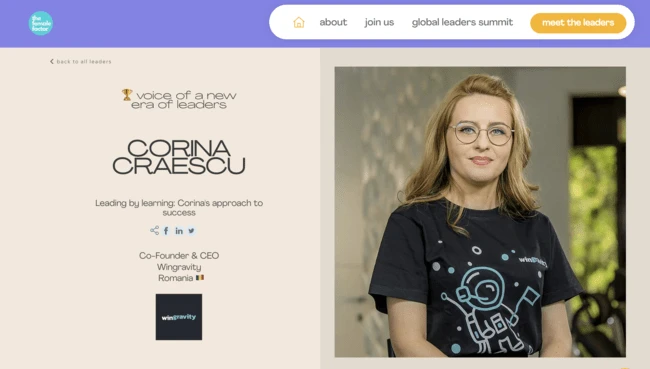Introduction
Staying up to date on the growing JavaScript ecosystem, including the arrival of Deno as a replacement for Node.js, may provide various benefits to both clients and software professionals. Clients may profit indirectly from quicker and more secure online apps produced with these runtimes, while software developers may investigate new possibilities and developments in the JavaScript ecosystem.
Are you a client interested in new JavaScript runtimes?
If yes, consider the following compelling benefits:
- You can build quicker and more secure online apps by using modern JavaScript runtimes like Deno. These runtimes are specially developed to address security concerns while also providing higher speed, resulting in improved user experiences. Building apps using these runtimes allows you to provide faster and more reliable service to your customers.
However, it is vital to contemplate the following challenges:
- When adopting new JavaScript runtimes like Deno or other alternative runtimes, you may encounter client compatibility issues: The evolving nature of the JavaScript ecosystem means that existing Node.js apps or libraries may require adjustments or updates to ensure compatibility with these new runtimes.
Are you a software engineer interested in new JavaScript runtimes?
If yes, consider the following compelling benefits:
- By embracing the dynamic JavaScript ecosystem, you can stay at the forefront of innovation and progress as a software professional: Exploring new runtimes like Deno, Vercel, and Cloudflare enables you to leverage cutting-edge capabilities, enhanced security, and improved speed. These advancements in runtimes can greatly benefit your development practices.
However, there are also some challenges that software engineers should be aware of:
Compatibility and Migration Challenges: As you explore new JavaScript runtimes you may encounter challenges related to compatibility and migration. Migrating existing codebases or integrating with third-party libraries and services may require additional efforts to ensure compatibility with the chosen runtime. It’s important to assess the compatibility of your applications and dependencies and be prepared for potential migration or adaptation requirements.
The efforts of Deno, Vercel, and Cloudflare to achieve API interoperability among their JavaScript runtimes can present challenges for software engineers. Ensuring compatibility and seamless integration between different runtimes requires standardization, collaboration, and ongoing updates. To contribute to a more unified and interoperable JavaScript ecosystem, it is essential for you to actively participate in and support these interoperability initiatives.
By recognizing the changing JavaScript landscape and the efforts of industry participants to accomplish API interoperability, both clients and software engineers can enjoy a more streamlined development experience. Collaboration between runtime providers facilitates the adoption of new runtimes, such as Deno, by minimizing compatibility concerns and promoting a more unified JavaScript ecosystem.
The Evolution of JavaScript Runtimes and the Significance of Deno in the Open-Source Community
Ryan Dahl, the original originator of Node.js, created Deno as an alternative to Node.js with the intent of addressing some of its limitations. Deno introduces new features and enhancements while maintaining JavaScript and TypeScript compatibility. It emphasizes security, improved module administration, and improved instrumentation.
Oak is a web framework for Deno that provides a minimalistic and expressive API for web application development. It leverages Deno’s capabilities and performance enhancements to provide a secure and efficient runtime for web development.
By keeping abreast of the changing JavaScript landscape and adopting technologies like Deno, software engineers can create web applications that are quicker and more secure. The enhanced security features of Deno, such as granular permissions and sandboxed execution, contribute to a more secure runtime environment, reducing the risk of vulnerabilities and enhancing the overall security of applications.
As with any transition to a new technology, however, software engineers must be aware of the possibility of compatibility issues. Deno introduces modifications and enhancements that may necessitate modifications to existing codebases and external dependencies. Software engineers must adapt and update their knowledge and skills to effectively leverage Deno and mitigate any potential compatibility issues.
In the endeavor to accomplish API interoperability and collaboration within the JavaScript runtime ecosystem, notable companies and organizations such as Vercel, Cloudflare, and WinterCG have participated actively. For instance, Vercel, a popular serverless platform, has been working to improve the compatibility between Deno and Node.js, enabling developers to integrate and deploy applications across various runtimes without any complications.
Collaboration in the industry provides clients and software engineers with a more streamlined development experience. These companies and open-source contributors collaborate to bridge the distance between JavaScript runtimes, enabling interoperability and facilitating the adoption of new technologies such as Deno.
Curious about the 6th trend of Web Development in 2023? Check out our next article: “Monorepos”.
Conclusion
Do not disregard the ongoing collaborations and initiatives that seek to achieve API interoperability. Software architects should actively participate in these efforts, contributing their knowledge and providing feedback to ensure compatibility issues are resolved. Clients should be aware of the potential compatibility issues that may arise during the migration to new runtimes and should collaborate with their software engineering teams to plan and execute a seamless migration strategy.
Software engineers can embrace innovation and contribute to the development of a more interoperable ecosystem by keeping abreast of and actively partaking in the changing JavaScript landscape. As a result, clients can profit from quicker and more secure web applications, while software engineers can embrace innovation and contribute to the development of a more interoperable ecosystem.
Ready to build a web application using the latest technologies? Contact us today!



